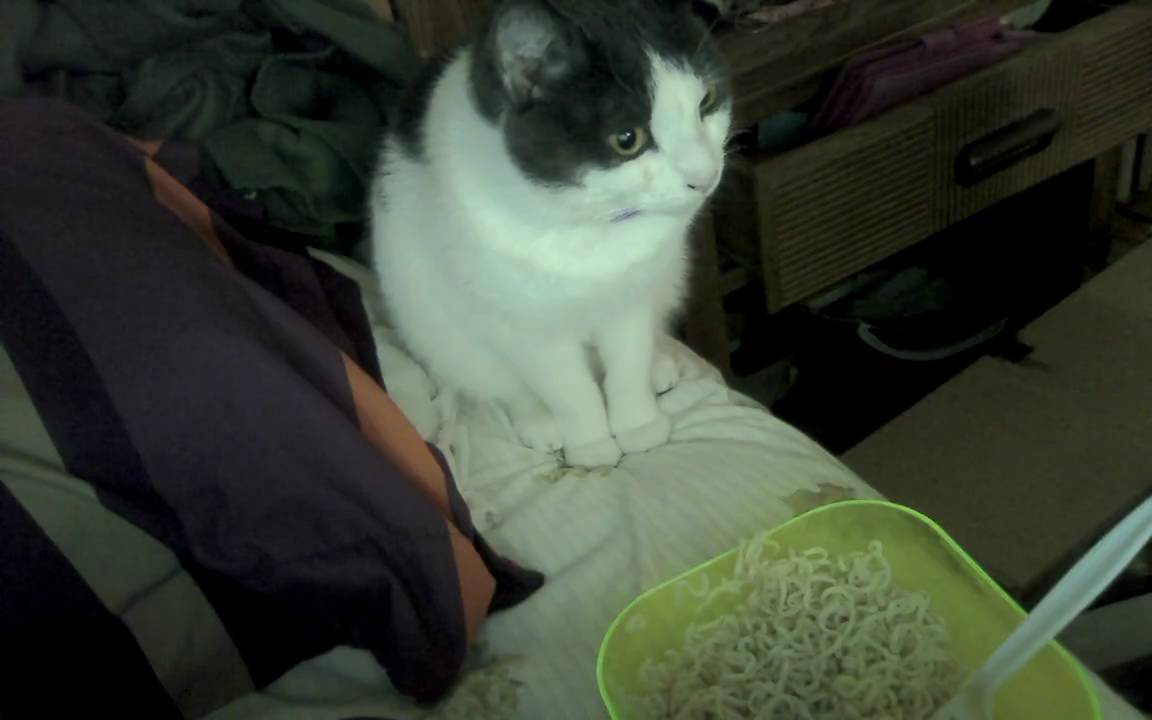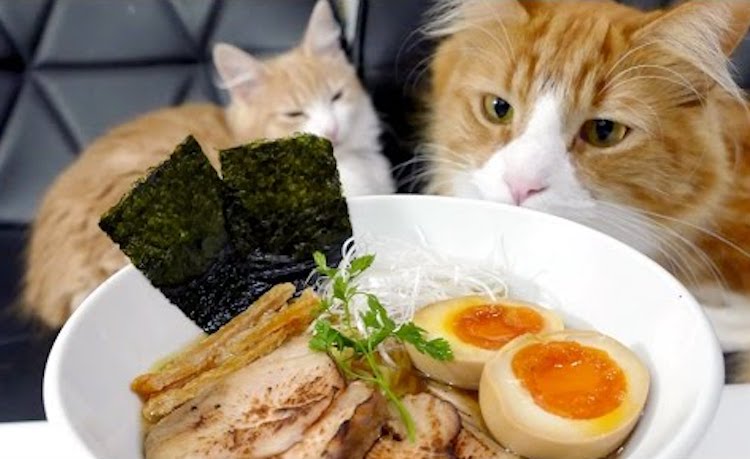Ramen, a popular Japanese dish consisting of noodles served in a flavorful broth, has gained immense popularity worldwide. As a cat owner, you may wonder if it is safe to share this delicious meal with your feline friend. In this article, we will explore whether cats can eat ramen and discuss the potential risks and benefits associated with feeding them this dish.

Can Cats Safely Consume Ramen?
While cats are obligate carnivores and require a diet primarily consisting of meat, they may occasionally show interest in other foods. However, when it comes to ramen, it is important to exercise caution. The main concern lies in the ingredients used to prepare the dish, as some of them can be harmful to cats.
Potential Risks of Feeding Cats Ramen
-
High Sodium Content: Ramen noodles and broth often contain high levels of sodium, which can be detrimental to a cat’s health. Excessive sodium intake can lead to dehydration, kidney problems, and even heart issues in felines.
-
Seasonings and Additives: Many ramen recipes include seasonings and additives such as garlic, onion, and various spices. These ingredients are toxic to cats and can cause gastrointestinal upset, anemia, and even damage to their red blood cells.
-
MSG and Artificial Flavors: Some instant ramen products contain monosodium glutamate (MSG) and artificial flavors. These additives can be harmful to cats and may cause adverse reactions such as vomiting, diarrhea, and allergic responses.
Benefits of Avoiding Ramen for Cats
By refraining from feeding your cat ramen, you can ensure their overall well-being and prevent potential health issues. Instead, focus on providing them with a balanced diet that meets their nutritional requirements. High-quality cat food formulated specifically for feline needs is the best choice to keep your furry friend healthy and happy.
Alternatives to Ramen for Cats
If you want to treat your cat to a special meal, there are safer alternatives to ramen that you can consider:
-
Cooked Meat: Cats thrive on a meat-based diet, so offering them small portions of cooked, unseasoned meat like chicken or turkey can be a delightful treat.
-
Cat-Friendly Broth: Instead of sharing your ramen broth, you can prepare a cat-friendly broth using boneless, skinless chicken or fish. Ensure that the broth is free from any seasonings or additives.
-
Commercial Cat Treats: There are numerous cat treats available in the market that are specifically formulated to meet feline dietary requirements. These treats are a safer and healthier option for indulging your cat’s taste buds.
Conclusion
In conclusion, it is best to avoid feeding cats ramen due to the potential risks associated with its ingredients. Cats have specific dietary needs, and their health can be compromised by consuming foods that are not suitable for them. Instead, focus on providing a balanced diet and occasional cat-friendly treats to keep your feline companion happy and healthy.
FAQs
- Can cats eat plain noodles without any seasoning?
Yes, cats can eat plain noodles without any seasoning. However, it is important to ensure that the noodles are cooked thoroughly and do not contain any harmful additives or seasonings.
- Is it safe to give cats ramen broth?
No, it is not safe to give cats ramen broth. The broth often contains high levels of sodium and may also contain toxic ingredients such as garlic and onion, which can be harmful to cats.
- Can cats eat instant ramen?
No, cats should not eat instant ramen. Instant ramen often contains additives like MSG and artificial flavors, which can be harmful to cats and may cause digestive issues.
- Are there any health benefits of feeding cats ramen?
No, there are no significant health benefits of feeding cats ramen. Cats require a diet primarily consisting of meat, and ramen does not provide the necessary nutrients for their well-being.
- What should I do if my cat accidentally consumes ramen?
If your cat accidentally consumes ramen, monitor them closely for any signs of discomfort or illness. If you notice any unusual symptoms, such as vomiting or diarrhea, contact your veterinarian for guidance.

